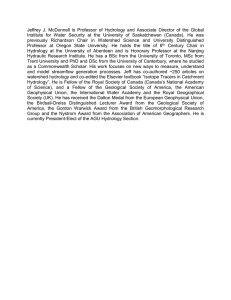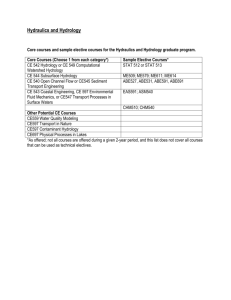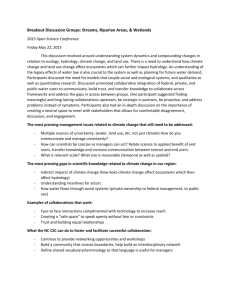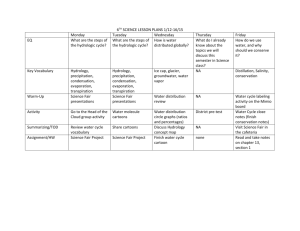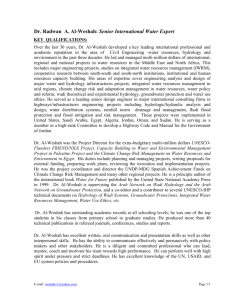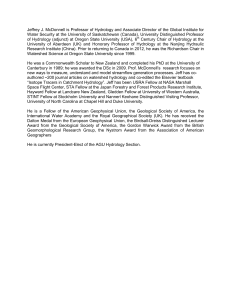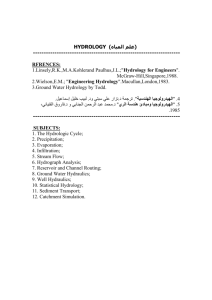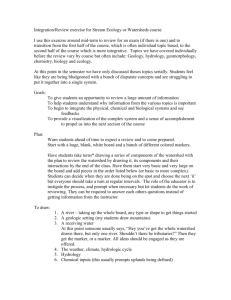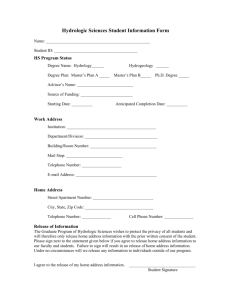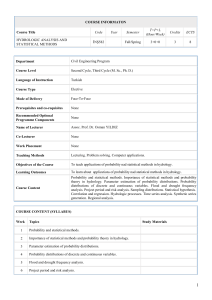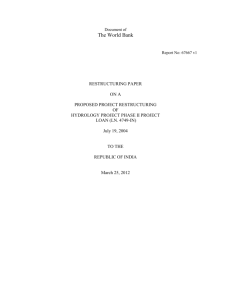Water as a Science
advertisement
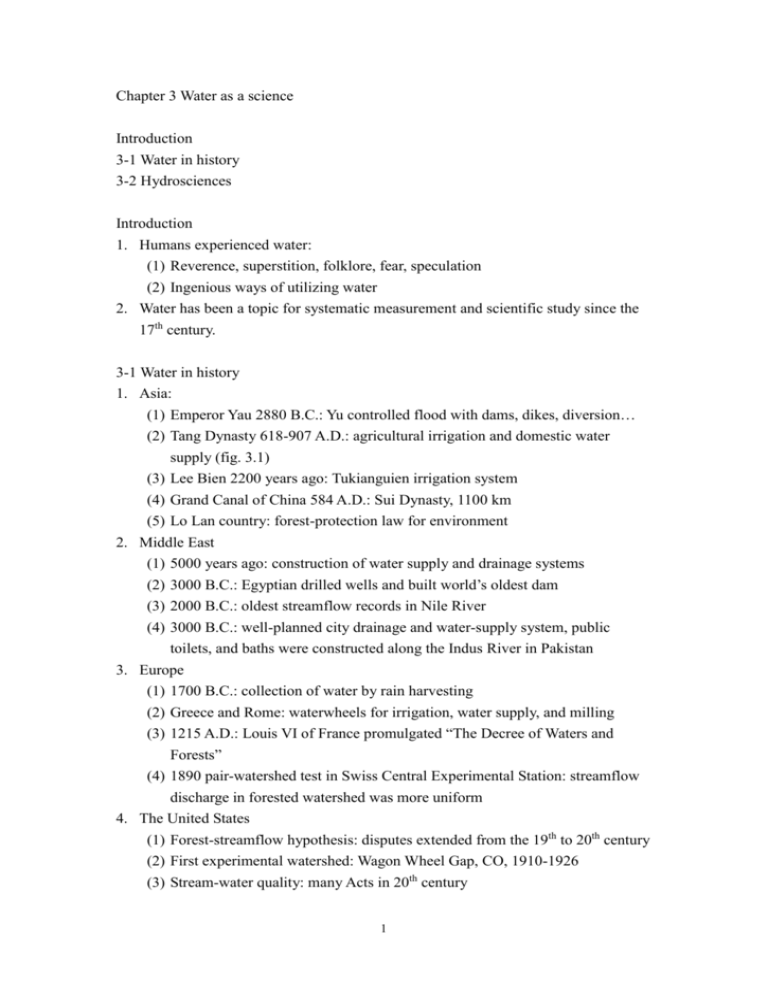
Chapter 3 Water as a science Introduction 3-1 Water in history 3-2 Hydrosciences Introduction 1. Humans experienced water: (1) Reverence, superstition, folklore, fear, speculation (2) Ingenious ways of utilizing water 2. Water has been a topic for systematic measurement and scientific study since the 17th century. 3-1 Water in history 1. Asia: (1) Emperor Yau 2880 B.C.: Yu controlled flood with dams, dikes, diversion… (2) Tang Dynasty 618-907 A.D.: agricultural irrigation and domestic water supply (fig. 3.1) (3) Lee Bien 2200 years ago: Tukianguien irrigation system (4) Grand Canal of China 584 A.D.: Sui Dynasty, 1100 km (5) Lo Lan country: forest-protection law for environment 2. Middle East (1) 5000 years ago: construction of water supply and drainage systems (2) 3000 B.C.: Egyptian drilled wells and built world’s oldest dam (3) 2000 B.C.: oldest streamflow records in Nile River (4) 3000 B.C.: well-planned city drainage and water-supply system, public toilets, and baths were constructed along the Indus River in Pakistan 3. Europe (1) 1700 B.C.: collection of water by rain harvesting (2) Greece and Rome: waterwheels for irrigation, water supply, and milling (3) 1215 A.D.: Louis VI of France promulgated “The Decree of Waters and Forests” (4) 1890 pair-watershed test in Swiss Central Experimental Station: streamflow discharge in forested watershed was more uniform 4. The United States (1) Forest-streamflow hypothesis: disputes extended from the 19th to 20th century (2) First experimental watershed: Wagon Wheel Gap, CO, 1910-1926 (3) Stream-water quality: many Acts in 20th century 1 3-2 Hydrosciences 1. Hydrology: scientific study of water (1) Disciplines in hydrology: a. On the body of water: (a) Potamology: study of surface stream emphasizing on stream dynamics and morphology (b) Limnology: study of life and phenomena of lakes and ponds (c) Cryology: study of snow and ice (d) Oceanography: study of oceans and their phenomena including physical, chemical, and biological oceanography (e) Glaciology: study of glacier (f) Hydrometeorology: distribution and occurrence of water on the Earth’s surface (g) Hydrogeology: groundwater (h) Hydrometry: science of water measurements b. On land-surface conditions: (a) Rangeland hydrology: (b) Agricultural hydrology: (c) Forest hydrology: forest-water relation, eco-hydrology (d) Urban hydrology: (e) Wetland hydrology: (f) Desert hydrology: c. On interdisciplinary studies (a) Geomorphology: concern with landforms and drainage characteristics created by running water and other physical processes (b) Paleohydrology: study of hydrologic conditions in ancient times (c) Engineering hydrology: (d) Watershed management: environmental, economic, social, integrated watershed management (e) Hydrobiology: water in biology (f) Medical hydrology: water in relation to human health 2
